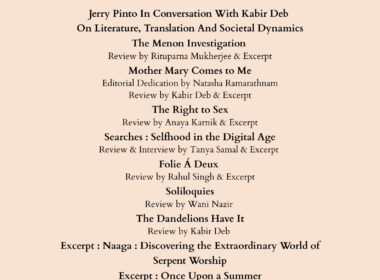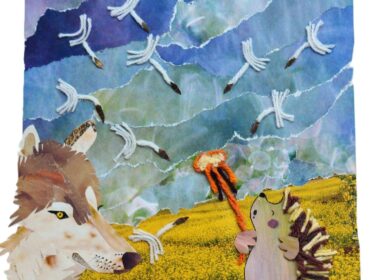NEW NEIGHBOR
Pulled from afternoon sleep
only by a sense that sane
bodies embrace this hour, I wander my flat,
rinsing dishes before the maid arrives,
to feel I’ve accomplished a task.
I quiet the living room fans, disturbed by their
frenetic motion, that incessant whirring.
The sky, a colorless sheet, hangs limp
behind the palm trees and wet leaves,
eclipsed by monsoon rhythms and crows’ cries.
Then through the grate covering my window,
I see a slim boy, red shorts,
bare chest, slide open
the glass of his grateless window
and lean his lithe body out.
Can he see me staring down at him,
only one story above, yet
impassably distant
from that rippled metal-scrap roof,
the blue tarp secured by stones?
Some Hindi show flickers on
behind him, and he slips back in,
now only his silhouette visible,
framed by a car chase cutting to
close-ups of a woman’s horrified face.
When he returns, though I expect him
to close the window, he reaches out again.
His hands receive the sky’s bounty,
rain the only abundance around.
He collects the unclean water,
lets it run through his fingers,
gathers it again, wipes it down
his perfect face and open mouth,
drops his arms and surveys this place,
his home, where there is somehow still enough.
Laura Traister served as a Fulbright-Nehru English Teaching Assistant in Mumbai in 2016–17 but now lives in the mountains of North Carolina, USA, where she works as a textbook editor. Her poems and essays have been published in the US, UK, and now India. In addition to reading and writing, she enjoys traveling, connecting to nature through daily walks, and bouncing between practicing Spanish and Hindi. You can read more about her work and contact her through LinkedIn.




